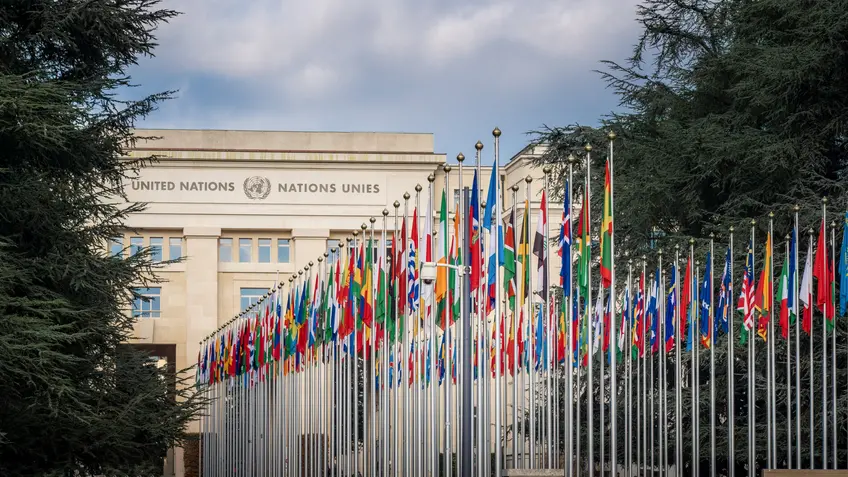NDC 3.0 in Action: NDC Partnership Member Country Submissions
Most countries that have submitted an NDC to date are members of the NDC Partnership. The following members have submitted their NDCs under the current “NDC 3.0” Paris Agreement ambition cycle:
- The United Arab Emirates submitted its NDC in November 2024, committing to a 47% emissions reduction target by 2035 compared to a 2019 baseline and strengthening its adaptation target.
- Brazil submitted its NDC in November 2024, committing to a 59-67% emissions reduction target by 2035 and strengthening its adaptation target.
- Uruguay submitted its NDC in December 2024, committing to a 30% reduction in national emissions and strengthening its adaptation target.
- Ecuador submitted its second NDC in February 2025, committing to a 7% reduction in national emissions and strengthening its adaptation target. UNDP supported Ecuador in the development of its NDC through the NDC Partnership.
- Saint Lucia submitted its NDC in February 2025, committing to a 22% reduction in national emissions and strengthening its adaptation target.
- The United Kingdom submitted its NDC in January 2025, committing to at least an 81% reduction in emissions by 2035 and strengthening its adaptation target.
- New Zealand submitted its NDC in January 2025, committing to reduce net emissions to 51-55% below gross 2005 levels by 2035.
- Singapore submitted its NDC in February 2025, committing to reduce emissions to between 45 to 50 million tonnes of carbon dioxide equivalent (CO2e) by 2035.
- Canada submitted its NDC in February 2025, committing to an emissions reduction target of 45-50% below 2005 levels by 2035 and strengthening its adaptation target.
- Japan submitted its NDC in February 2025, committing to reduce national emissions by 60 percent by 2035 from 2013 levels, and by 73% by 2040.
- Montenegro submitted its NDC in February 2025, committing to cut net emissions by at least 55% by 2030 and 60% by 2035, compared to 1990 levels. covering all sectors and expanding its greenhouse gas coverage. UNDP and 2050 Pathways supported Montenegro through the NDC Partnership.
- The Maldives submitted its NDC in February 2025, committing to reduce 1.52 million tonnes of CO2eq by 2035 relative to a 2034 business-as-usual (BAU) scenario — conditioned on finance, technology, capacity building and other support. The country also strengthened its adaptation target. NDC Partnership In-Country Facilitators helped the Maldives coordinate its NDC development process.
- Cuba submitted its NDC in February 2025, committing to generate 26% of its electricity from renewable sources by 2035 reduce potential biomethane emissions from sugar distilleries by 50% by 2035 from a 2030 baseline and strengthening its adaptation target.
- The Republic of the Marshall Islands (RMI) submitted its NDC in February 2025, committing to reduce emissions by at least 58% below 2010 levels by 2035 and strengthening its adaptation target.
- Zambia submitted its provisional NDC in March 2025, aiming to cut emissions by 25-47% by 2030 — depending on levels of international support — and strengthen its adaptation target. Zambia received support from UNDP, UNICEF, FAO and the World Bank through the NDC Partnership.
- Zimbabwe submitted its NDC “Country Statement” in February 2025, an abridged version of its NDC 3.0, stating its intention to reduce emissions by 40% per capita compared to a 2035 BAU scenario and strengthen its adaptation targets. UNEP is supporting Zimbabwe with its NDC 3.0 development through the NDC Partnership.
- Kenya submitted its NDC in May 2025, committing to cut emissions 35% by 2035 compared to a BAU scenario and strengthening its adaptation target. The NDC Partnership’s In-Country Facilitator supported the development of the new NDC, coordinating ministries and partners to align around national climate priorities.
- Moldova submitted its NDC in May 2025, committing to reduce its emissions by 75% below 1990 levels by 2035 and strengthening its adaptation target. Moldova developed its NDC 3.0 with support from IRENA, GIZ, ICAT and UNDP through the NDC Partnership.
- Nepal submitted its NDC in May 2025, raising its ambition on both mitigation and adaptation, committing to cut net GHG emissions by 26.8% in 2035 compared to a business-as-usual scenario.
- Belize submitted its NDC in June 2025, committing to cut 6.2 MtCO2e in emissions by 2035 compared to a business-as-usual scenario, while strengthening its adaptation target. Belize developed its NDC 3.0 with support from Climate Analytics, BMWK, GIZ and IKI, coordinated through the NDC Partnership. The NDC Partnership In-Country Facilitator, embedded within the National Climate Change Office, played a key role in supporting cross-sectoral collaboration, partner coordination and the document review process.
- Somalia submitted its NDC in June 2025, committing to reduce GHG emissions by 34% by 2035 compared to business as usual and strengthening its adaptation target. The NDC 3.0 was developed with support from UNDP, the World Bank and Oxfam, coordinated through the NDC Partnership. The NDC Partnership In-Country Facilitator, embedded in the Ministry of Environment and Climate Change, played a key role in coordination.
- Norway submitted its NDC in June 2025, committing to reducing GHG emissions by at least 70–75% from 1990 levels.
The NDC Partnership is actively supporting countries with NDC 3.0 development through the Global Call for NDCs 3.0 & LT-LEDS.
Read the joint statement on NDC 3.0 submissions from NDC Partnership Co-Chair representatives Ana Toni, Secretary for Climate Change in the Ministry of Environment and Climate of Brazil, and Ole Thonke, Undersecretary for Development Policy in the Ministry of Foreign Affairs of Denmark.
